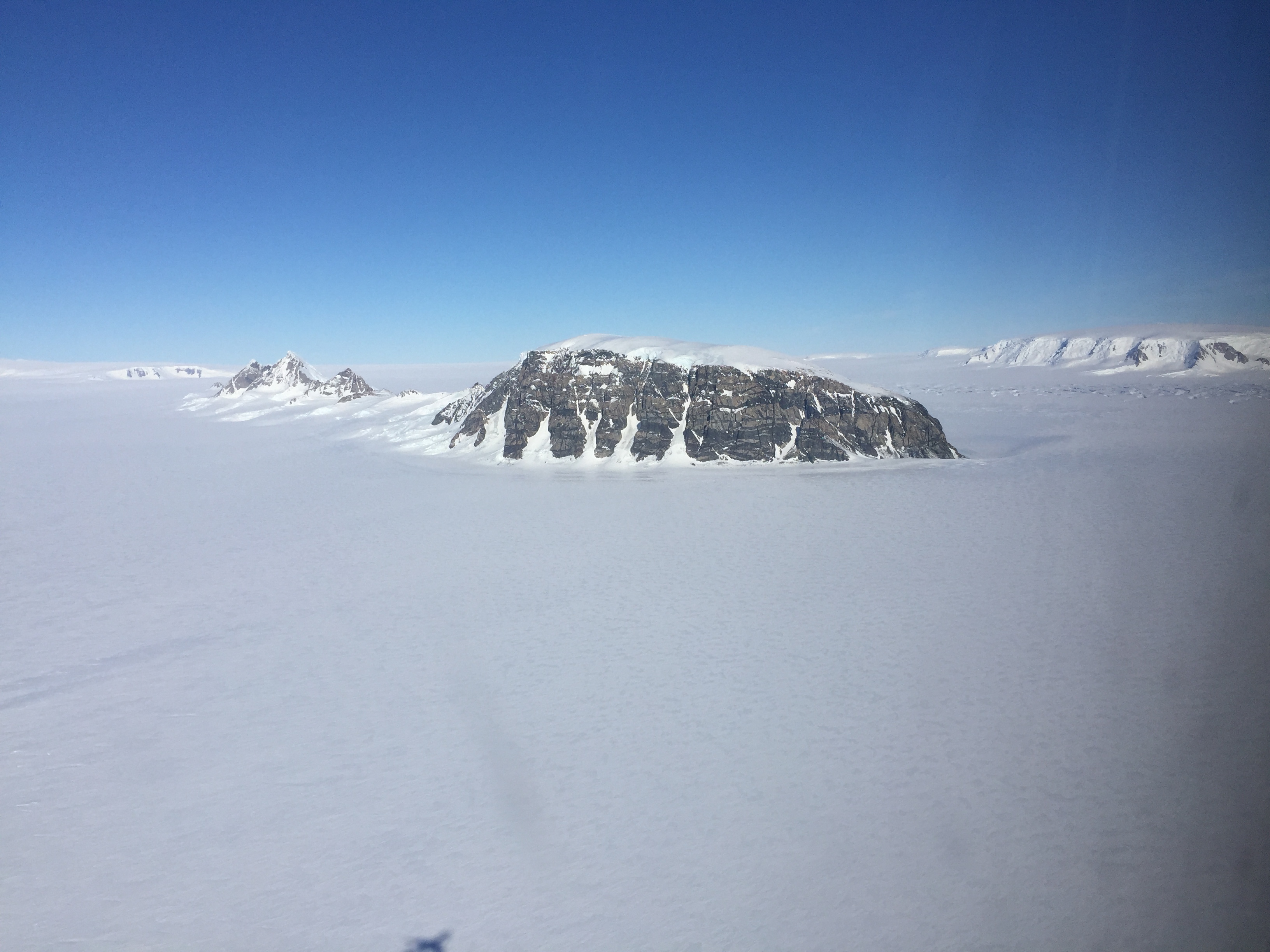Difference between revisions of "Mount Prince"
Westarctica (talk | contribs) (→Biology: added note about number of birds) |
Westarctica (talk | contribs) |
||
| Line 5: | Line 5: | ||
During a 1968 biological survey of [[Marie Byrd Land]] Mount Prince was one of the few locations in Western Antarctica that was found to have all four forms of life the survey team was looking for: [[lichen]]s, algae, [[moss]]es, and [[snow petrel]]s. This can be attributed to the far northern location of the mountain, its relative proximity to the coastline, and the ease with which the survey team was able to ascend the butte. | During a 1968 biological survey of [[Marie Byrd Land]] Mount Prince was one of the few locations in Western Antarctica that was found to have all four forms of life the survey team was looking for: [[lichen]]s, algae, [[moss]]es, and [[snow petrel]]s. This can be attributed to the far northern location of the mountain, its relative proximity to the coastline, and the ease with which the survey team was able to ascend the butte. | ||
In the follow-up surveys conducted in December 1990, there were | In the follow-up surveys conducted in December 1990, there were more than 100 petrels identified at Mount Prince, but no indications that it serves as a location for a breeding colony. | ||
==Discovery and name== | ==Discovery and name== | ||
Latest revision as of 18:00, 2 December 2019
Mount Prince (74°58′S 134°11′W) is a prominent butte (640 meters high) marking the far north end of the Perry Range on the coast of Westarctica.
Biology
During a 1968 biological survey of Marie Byrd Land Mount Prince was one of the few locations in Western Antarctica that was found to have all four forms of life the survey team was looking for: lichens, algae, mosses, and snow petrels. This can be attributed to the far northern location of the mountain, its relative proximity to the coastline, and the ease with which the survey team was able to ascend the butte.
In the follow-up surveys conducted in December 1990, there were more than 100 petrels identified at Mount Prince, but no indications that it serves as a location for a breeding colony.
Discovery and name
The mountain, and the entire Perry Range, was discovered and photographed from aircraft of the United States Antarctic Service during the 1939–41 season, and was mapped by United States Geological Survey from surveys and air photos collected over the years 1959-65. Mount Prince was named by the Advisory Committee on Antarctic Names in honor of ADR2 Joseph F. Prince, a U.S. Navy Aviation Machinist's Mate with Squadron VXE-6 who participated in several Operation Deep Freeze operations and wintered over at Little America V in 1956 and at McMurdo Station in 1966.
